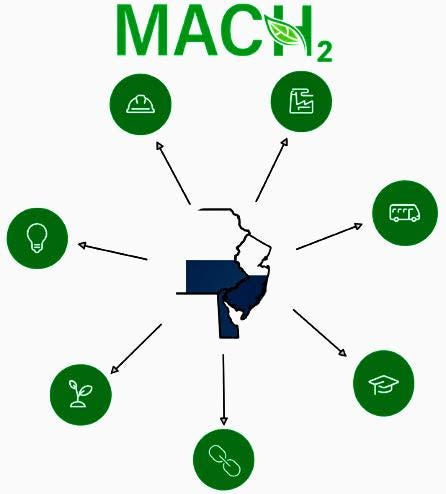A fear of the unknown?
If the federal government has to prime the pump, I always suspect it's a boondoggle.
In reading the weekly update from our “guvnah” last week, I saw a piece bragging about how the state of Delaware is going to cash in: “Our region has been chosen for a federal infusion of hundreds of millions of dollars that will create thousands of well-paying union jobs. Delaware companies and institutions have already led on hydrogen and now will play a big role in the Mid-Atlantic Clean Hydrogen Hub.”
So I looked at that puff piece, which links to the federal announcement, and said “hmmmmm.” And it wasn’t just a couple hours later that I received my regular missive from the Delaware House Republicans that talked about the same thing, but helpfully linked to the MACH2 program that’s scarfing up a cool $750 million of your great-grandchildren’s income. Obviously they were a little more cautious about it, saying:
Despite the enthusiasm expressed by Gov. Carney and other regional leaders over the award, a hydrogen-based economy faces many technical hurdles to cost-effectively produce, store, and transport the massive quantities needed to replace fossil fuels. Resolving these issues, and building new extensive infrastructure supporting each step of the process, will be a lengthy and costly undertaking.
MACH2, for their part, at least explained what a “hydrogen hub” is:
Created by the Bipartisan Infrastructure Law, the Regional Clean Hydrogen Hubs program will award up to $7 billion to establish up to 10 regional clean hydrogen hubs across the country. Regions are competing for federal funding that can be used over a decade on projects that demonstrate the production, processing, delivery, storage, and end use of clean hydrogen and create model networks of hydrogen producers, hydrogen consumers, and connective infrastructure in a close geographic area.
In essence, our “close geographic area” is the Philadelphia-Wilmington region, including the part of New Jersey directly across the Delaware Bay.
This is one of those cases where I could definitely stand to have the expertise of
on my side, because when I did the little bit of light reading to understand the concept I was confused by the terminology of green and blue and gray hydrogen - hey, to me hydrogen is H. It’s also lighter than air, which leads to leaks, and extremely flammable - remember the Hindenburg?So I’m not quite sure what the end game is here, unless they’re thinking it’s a practical replacement for natural gas. I did read that they are considering hydrogen as a fuel for large trucks, busses, etc. as these are vehicles which they’ve tried to convert to natural gas, with limited success.
What troubles me, though, is that the federal government felt the need to create this market. I think in this case they thought, well, we have all these pipelines from refineries that closed up (in part due to our environmental regulations and discouragement of domestic drilling) and we have all these Big Labor backer unions that need to have jobs created so they can give us the union dues they scrape off the paychecks - hey, let’s spend $7 billion on them and call it green technology!
And notice it’s not just “jobs”, but “union jobs.” Like no one else can do the work without that magic card (and paycheck deduction.)
Admittedly, unlike wind and solar, there is plenty of hydrogen around, so it’s a reasonably reliable resource. The question must have always been that of making it useful to us in a way that’s price-competitive.
Indeed, there may be a breakthrough on that front but I’m not holding my breath because now that the federal money spigot has been opened up, it’s likely more profitable to these startups to rely on that sweet, sweet honey pot of taxpayer dough. Betcha $7 billion today is $12 billion more in a year or two, but if they’re under the illusion it can change the climate the sky is the limit for government dependence.
And don’t forget: you can also Buy Me a Coffee, since I have a page there now.




1st !
My brother has the same name btw.